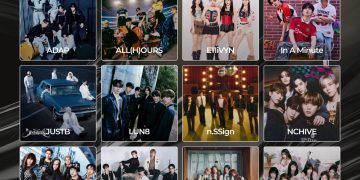Ethical considerations in recruitment involve a lot of changes to the standard way of doing business and hiring potential employees. While unethical hiring practices are not illegal, those practices tend to bring any industry a black eye.
To avoid gaining a bad reputation, companies need to practice ethical hiring. Ethical hiring includes trust, honesty, respect, and responsibility on the part of the employer. These attitudes help level the playing field while making their hiring processes more ethical.
Plus, you are to act in the best interest of the employee as well as the company that will hire these job candidates.
What Are Ethical Hiring Practices?
1. Equal Opportunity
Everyone who applies for the job opening can be discriminated against. Everyone has a fair path to obtaining the job as the HR department dispenses with stereotypes, uses objective criteria, and follows anti-discrimination laws.
2. Job Description Transparency
Job description are open, honest, and accurately relate employment opportunities, and qualifications, and omits exaggerated language. The job description also uses inclusive language while avoiding stereotypical gender words or biased terminology to attract a wider field of candidates.
The job description should also accurately describe salary, benefits, and other information to help the candidate make informed decisions.
3. Consistency And Fairness In Evaluations
This includes conducting standardized interviews as well as removing certain language from resumes for blind recruitment. These efforts are to remove implicit bias from the hiring process.
4. Privacy
This involves protecting the candidates’ personal information they have divulged to your company’s HR department. Also, it means getting the candidates’ consent before collecting private information from other sectors of society.
5. Ask For Feedback
Since potential employees invest a lot of time in the hiring process, it is considered ethical to get feedback from those candidates. This is to help improve the hiring process and to help the failed candidate have a positive attitude towards the company.
Why Are Ethical Hiring Practices Important For The LGBTQ Community?
One reason the ethical hiring process is important to the LGBTQ community is to foster their well-being. Often unethical hiring practices can negatively affect LGBTQ member in different areas of their lives resulting in tragic events.
Often, the LGBTQ community experiences unfairness in the work area and many have been fired, denied promotions, loss of work hours, and endured harassment or violence because of their sexual preferences.
Ethical hiring practices are enacted to help prevent this discrimination from taking place and allow LGBTQ members a chance to work in a healthy environment.
Another reason ethical hiring practices are important to LGBTQ member is that it provides them with the opportunity to showcase their skills, talents, and qualifications for a specific job opening.
Being unable to display what they offer to a company is unethical and deprives LGBTQ member of a job where they can meet all responsibilities and carry out their duties.
Plus, it provides the LGBTQ member with a safe work environment where they are free from harassment and any violent tendencies from their co-workers.
What Are Some Specific Ethical Hiring Practices That Employers Can Implement To Support The LGBTQ Community?
- Never Place Misleading Job Ads– This includes misrepresenting the qualifications or duties the job requires. Make sure the ad is clear, concise, and honest.
- Conduct Proper Interviews– This will include informing the candidate of the career implications as well as helping them understand the offer. Leave implicit bias outside of the interview room.
- Treat All Candidates Equally– Follow anti-discrimination laws and look at their qualifications as well as their achievements. Do not look at their protected characteristics.
- Only Collect Important Related Candidate Information– For example, where the candidate was born is not related to the position offered. But where they live is as that affects their commute and being on time for work
- Always Maintain Confidentiality– The candidates’ personal data should not be shared with anyone, including potential co-workers. Always maintain confidentiality and seek candidate permission before releasing any information.
- Do Not Use Redirection– This is where a recruiter shares the feedback created by the hiring manager with the candidate. This gives an unfair advantage to the candidate over other candidates, especially if they can satisfy all the concerns of the hiring manager.
- Provide A Hiring Answer Within A Specific Time Frame– Do not waste the applicant’s time by delaying the hiring decision. Give them an answer as quickly as possible.
How Can Employers Overcome These Challenges And Create A More Equitable Hiring Process?
The first step in achieving an equitable hiring process is to understand and know the challenges that must be overcome. These challenges include:
- Attracting the right candidates
- Engage qualified candidates
- Hiring quickly
- Use data-driven recruitment
- Ensuring a good candidate experience
- Recruit fairly
- Create a fair recruiting process
Some of these challenges can be solved and overcome by implementing the following procedures:
- Build A Talent Pool- Look at previous failed candidates to see if they still meet the qualifications. This will help reduce the hiring time.
- Use A Trained Hiring Committee- These are people who can put bias and stereotypical thinking aside and follow an ethical hiring process to find the right candidate.
- Use A Variety Of Recruiting Options- This can be done by employing social media to promote job openings or the company or be a part of job fairs and other options.
- Use Online Recruitment Tools- These will help find qualified candidates in a variety of areas, their skills, and other job-related criteria.
Some Additional Words
Ethical hiring for LGBTQ members means that their sexual preference is not part of the hiring process. It is not information that helps the HR recruiter know if the candidate is qualified for a specific job or not.
What is important information will be the skills, merits, and other qualifications the LGBTQ member holds. That is important information that helps the HR recruiter find the right candidate for the job opening.





























